New Zealand: The Magic of Rotorua
“He kakano ahau, ruia mai i Ranglatea” (I am a seed, scattered from Raniatea) and so Lynn and I entered “the magical world that was home to the Patu-paikarehe fairy people who lived off the products of the forest and the inanga (whitebait) that thrived in Lake Rotorua” (Fairy Folk of the Ngongotaha Mountain by Mrs. EC Cowan).
It has taken us over fifteen years, but we finally arrived in Rotorua to visit with David and Gill Russell and were made to feel as welcome in the Russell home as at any home in our lives. Over several days, we shared stories and pictures of our families and lives.
David and Gill also compiled a list of attractions to visit while in Rotorua. This city of 68,000, which attracts over 3 million visitors per year, is a wonderland of tectonic and volcanic activity that gives just a tiny insight into the world that existed millions of years ago. The hundreds of ocher stained streams and rocks and the magnificent emerald, green and blue lakes, stretch for hundreds of square kilometers. Downwind, the strong smell of sulfur wafts through the air. There are no “sinus” blockages in Rotorua.
During our stay we observe dozens of geology students from around the world attracted by this world of deep subterranean geologic activity that reaches to the surface. Lake Rotorua is formed, and the city built, within the crater of a long since dormant volcano where every rock outcropping around the city and in the surrounding area continues to vent steam and boiling water from thousands of fissures in the rock. The tourist literature refers to the volcano as “extinct” but that point, in my mind at least, seems open to debate.
In many places, steam vents erupt to a height of twenty or thirty meters two, three or four times per hour. Bubbling, dancing pools of mud create hundreds of concentric circles that hold your attention not for minutes but for hours as small geysers of mud jump high above the surface competing with each other for attention.
One long dormant (inactive?) volcano, a short drive from the Rotorua, erupted a few years back and, tragically, killed several Maori people who lived in a nearby village. The same eruption also obliterated a classic outcropping of layered rock. While this was considered to be a small eruption, it did markedly change the contour of the horizon for many kilometers. In the slideshow panoramic scenes of Rotorua you can see the “flat topped” mountain on the far horizon.
While you might think all this activity within the bowels of the earth would leave one with an uneasy, vulnerable feeling that is certainly not the case. It is such a serene place you cannot help but feel at one with the intense energy of a more primitive earth.
David and I took a more fatalistic approach, perhaps our age giving us the latitude, and suggested to the girls that we could all become etched in the annals of history if we suddenly disappeared as did the peoples of Pompeii many centuries earlier. What a story for our children and grandchildren. One of them might even write a posting for Facebook complete with satellite photos of the event. Lynn and Gill told us to ‘get a life’” David reminds Gill about a recent eruption that sent rocks flying from a public thermal park to the hospital parking!!!
We were thrilled to be with Gill and David as we cheered on the All Whites National (Soccer Team) as they clawed their way to a berth in the 2010 World Cup. The next day, we also cheered the All Black’s (Rugby Team) as they downed Italy in a high profile match. In NZ, we are beginning to understand that everything truly is “White and Black”.
As in any tense sporting match, Lynn ended up lying on the floor behind the couch- hand over her eyes, anxiously awaiting the results while David, Gill and I jumped up and down on the chesterfield and chair (good thing the kids couldn’t see us). It is extremely gratifying to see NZ, a country of just four million people, carve out a berth in the World Cup, a berth that Canada, with 35 million, has yet to grasp.
I am convinced it has much to do with the rugged determination of these people living in an isolated, raw, jagged land where they must become self-reliant or perish. (I hope to write more on my impressions of the sporting successes in NZ and Australia at a later date.)
David and Gill are three-generation Kiwis who have lived in many cities and towns on both the North and South Islands. The places where they have not lived, they have travelled and NZ provides 100’s upon 100’s of scenic areas to visit, all within a day or two from home. In the early 90’s, the Russells took a “foreign posting” and lived for several years in the idyllic, tropical paradise of Western Samoa — oh, even for Kiwis, life does have its little challenges!
During interludes from our many walks and driving tours around the city, Gill somehow found time to prepare repasts that would tickle the palates of top European chefs (or perhaps a certain chef we know in Kamloops), while David tried to teach me the Haka. This testy little pregame chant is performed by the All Blacks and by High Schools and University teams before every match.
The Haka, a traditional Maori chant, performed by warriors prior to engaging in battle. In past days, this was meant to instill fear in their opponents. In current times, it is performed by sport teams to intimidate opponents. It was with great disappointment to David that my version came off more as an invitation to beat me up rather than to sow a seed of doubt in the opposition. I think David is concerned I may at some point try my chant in public. Lynn assures him I am not prone to acting silly in public places. (yeah right!)
During our stay, we were delighted to have an opportunity to meet their daughter Kim, her husband, Hywell, and their children, Mathew and Emma, who were visiting from their home in the South Island city of Dunedin. They are a delightful family. Emma and Mathew are filled with that boundless energy of youth and an excitement for life that cannot help but invigorate any adult. Grandma and Grandpa are justifiably proud.
On the final day of our stay David, Gill, Lynn and I pay a visit to Vicki’s memorial at which a Kauri tree has been planted in memory of their beloved daughter. We had been so fortunate to have shared our home with Vicki as she completed her ‘GAP’ year in Victoria. That ever so brief interlude in our life with that delightful, vibrant and mischievous young woman is a bond we will forever share with David and Gill and the entire Russell family.
Rotorua, NZ
2009
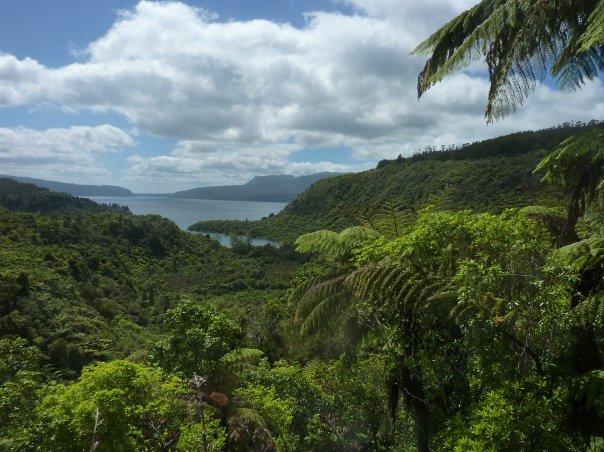
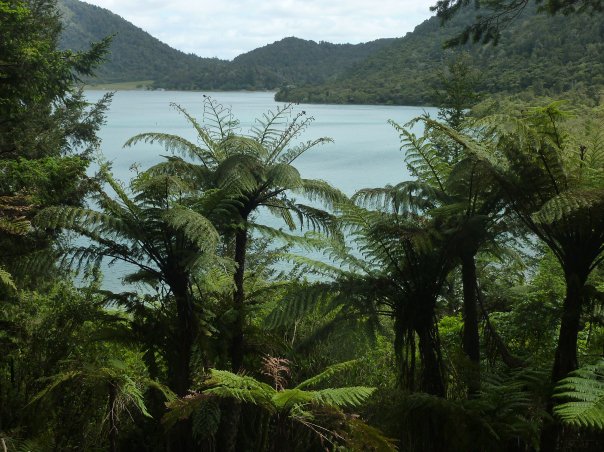
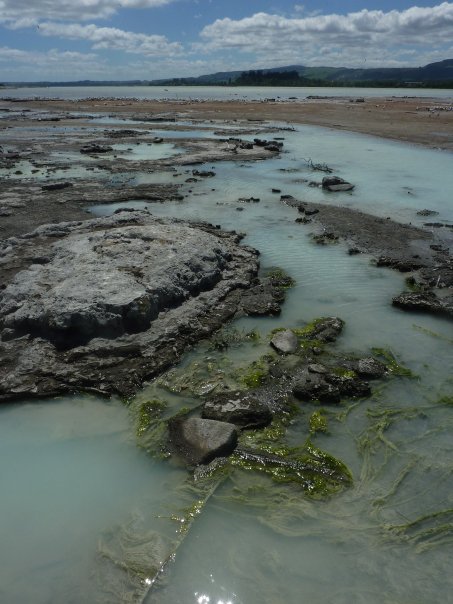
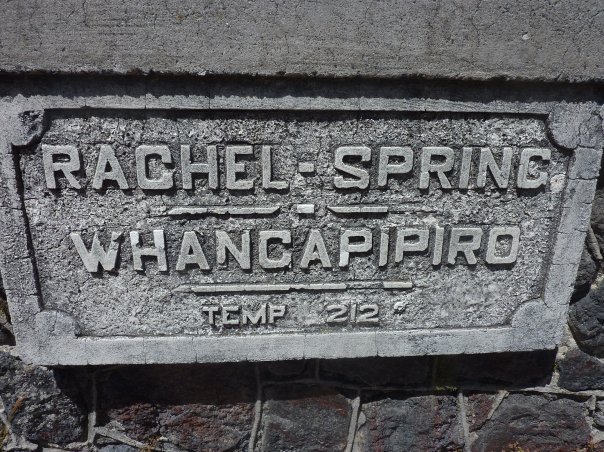
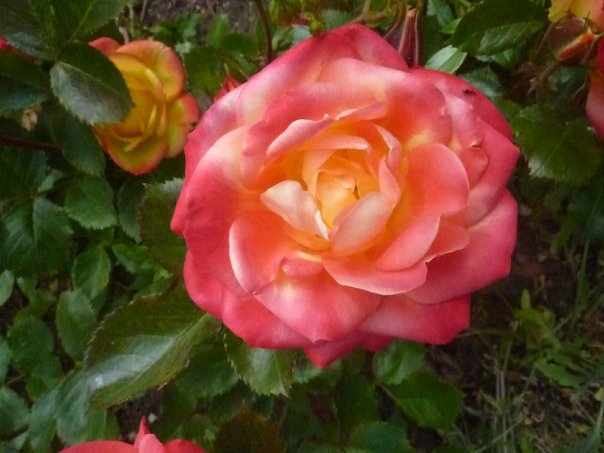
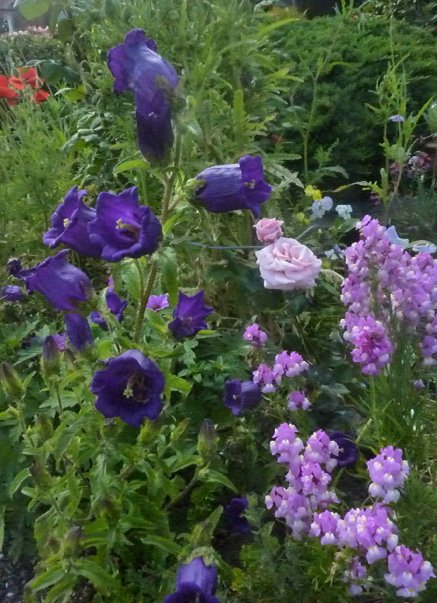

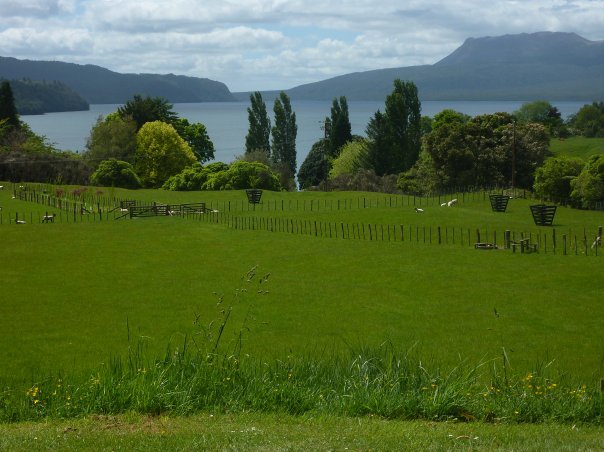
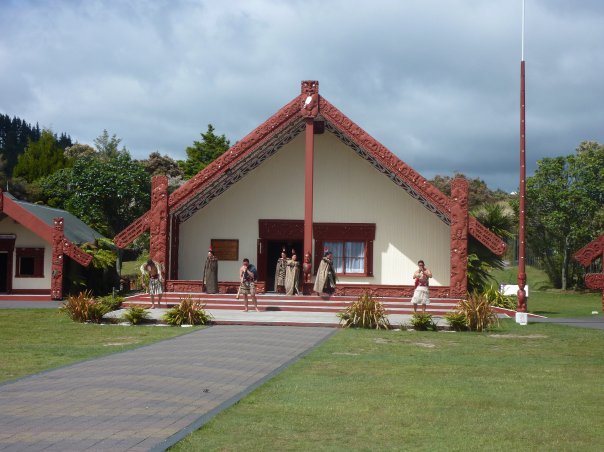
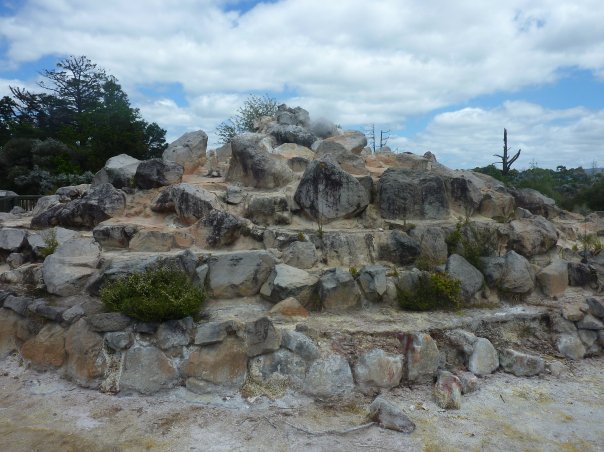
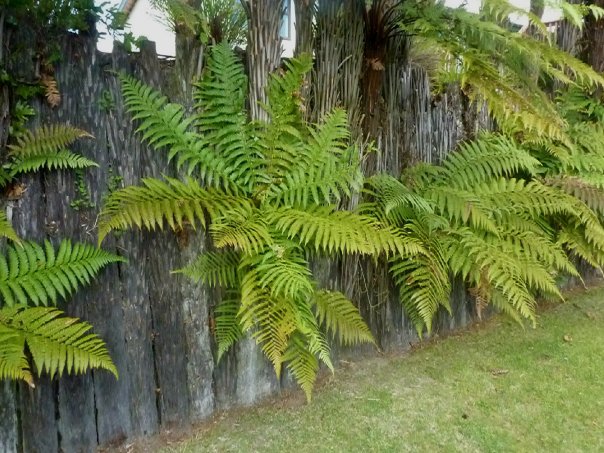
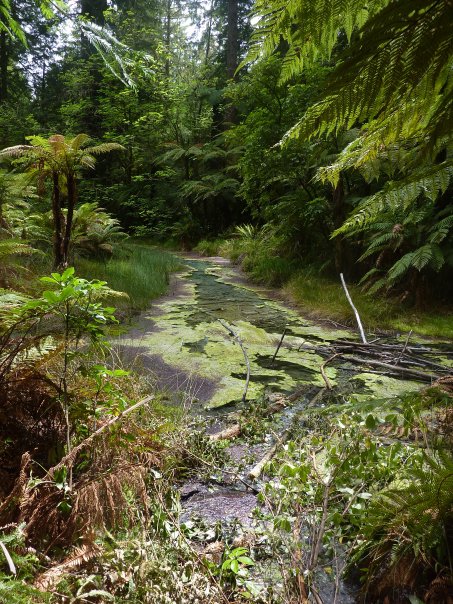
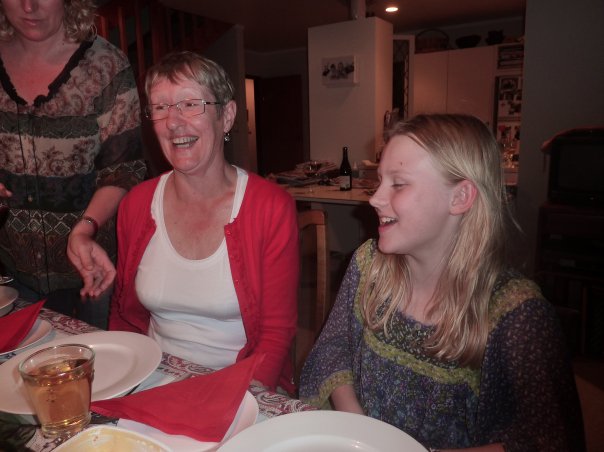

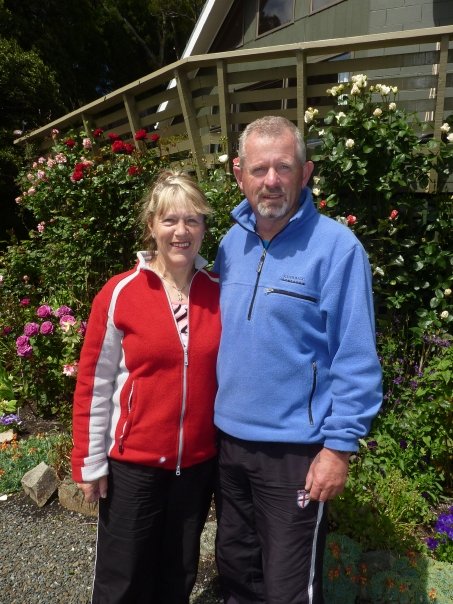


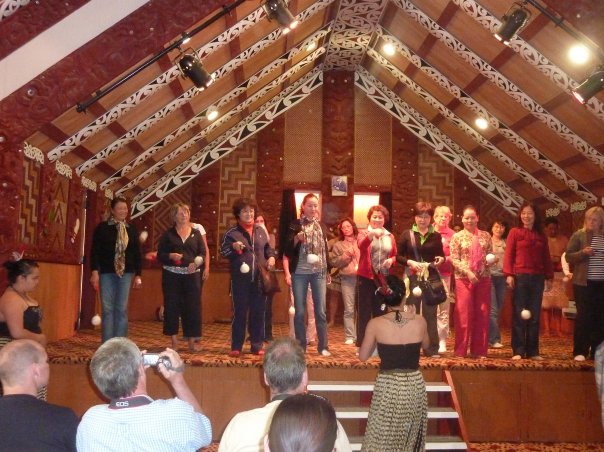
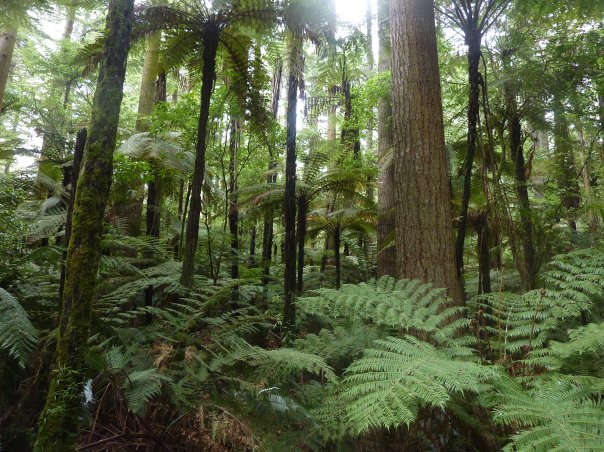
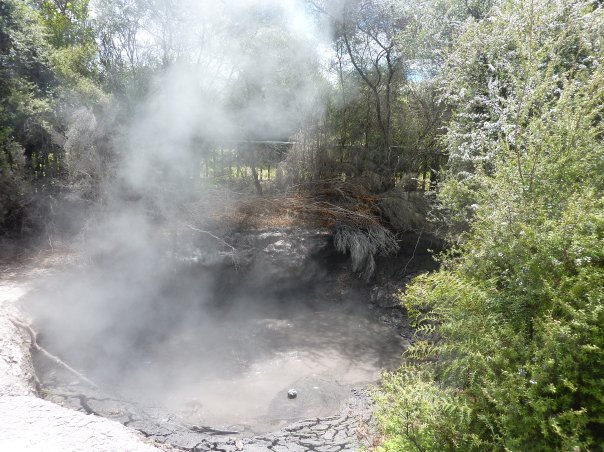
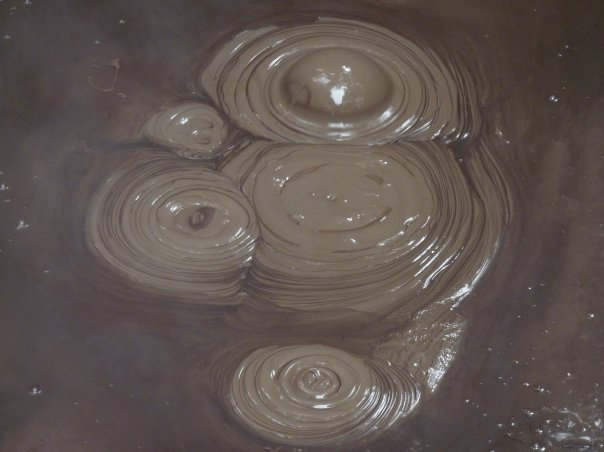
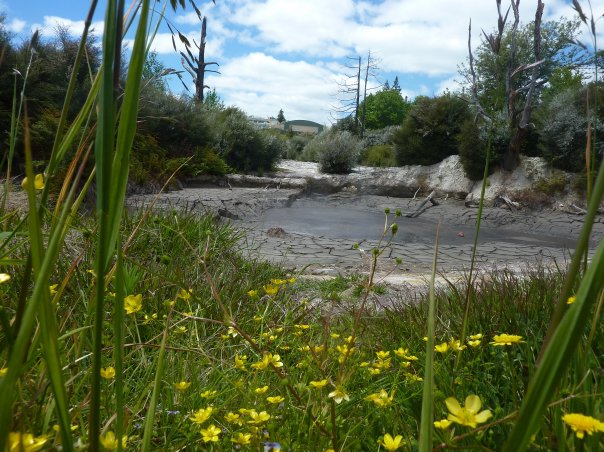
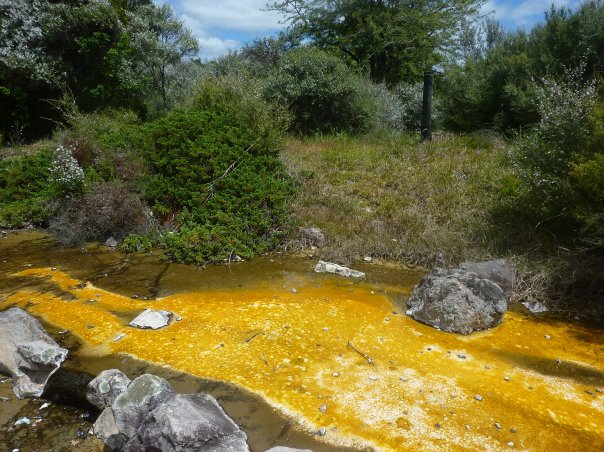
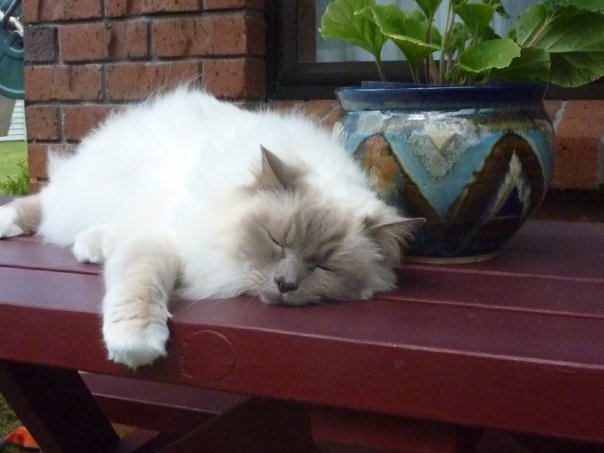
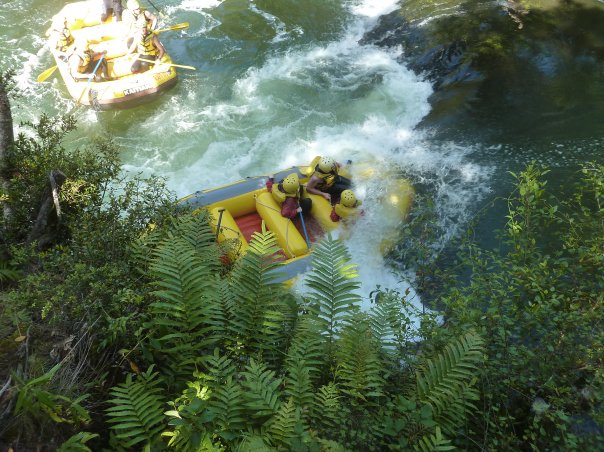
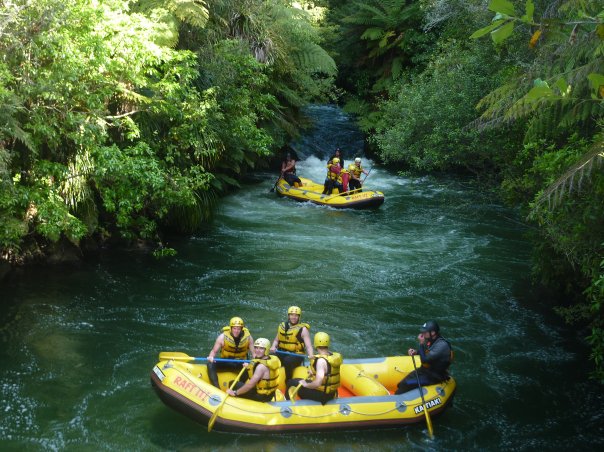
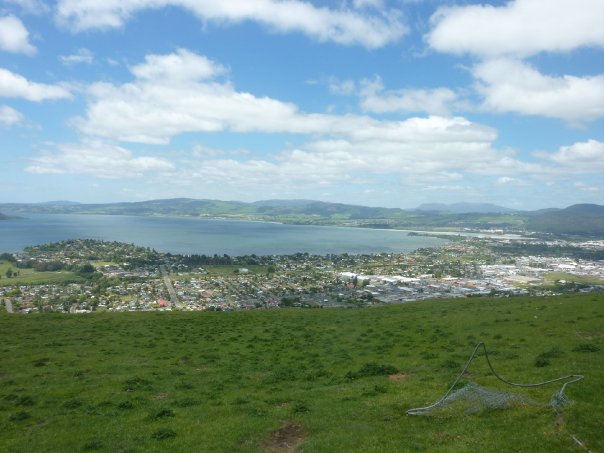
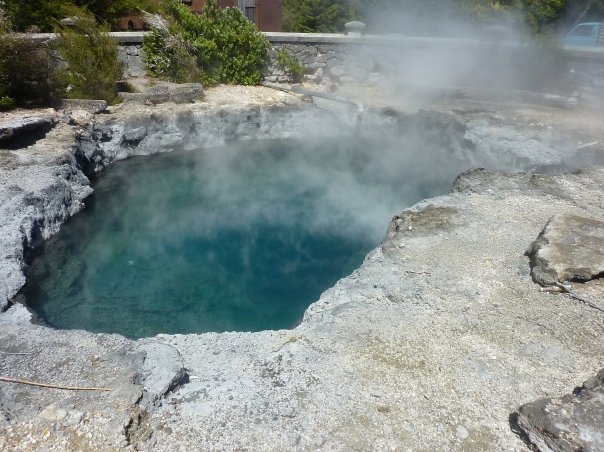
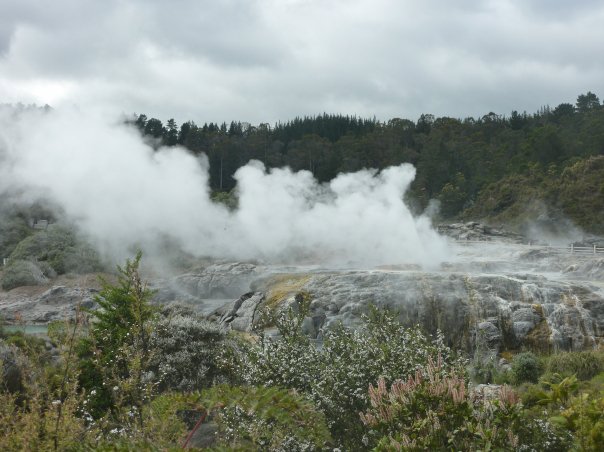
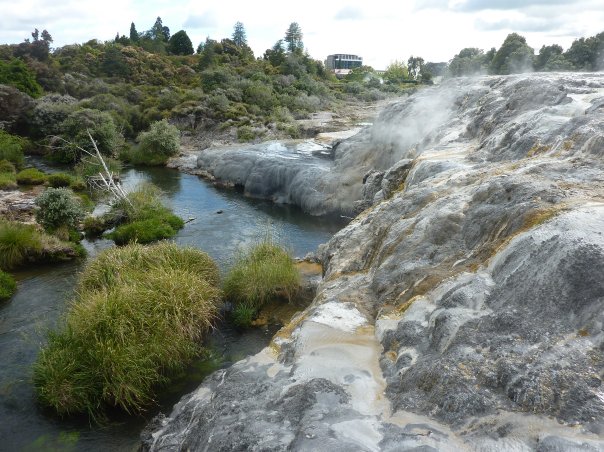
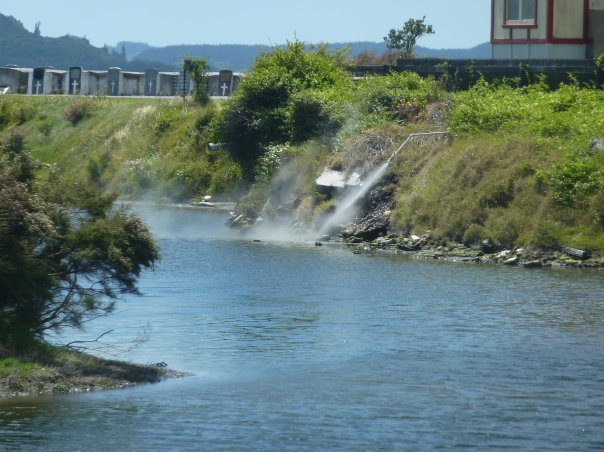
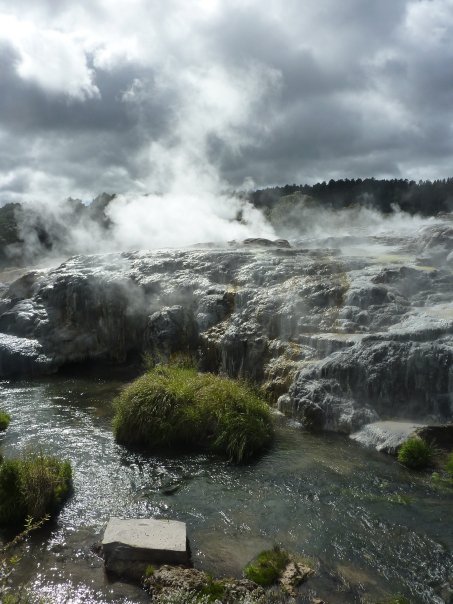
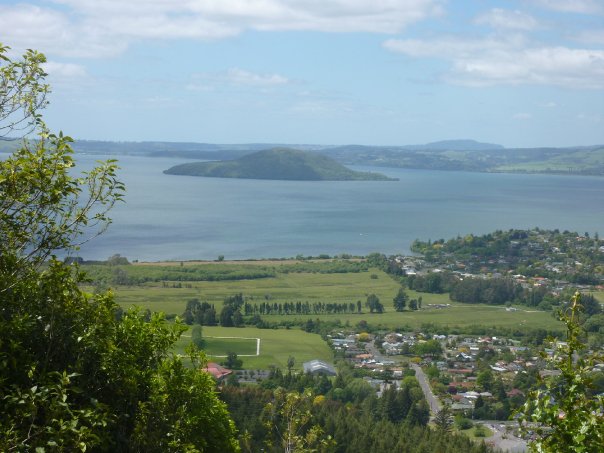
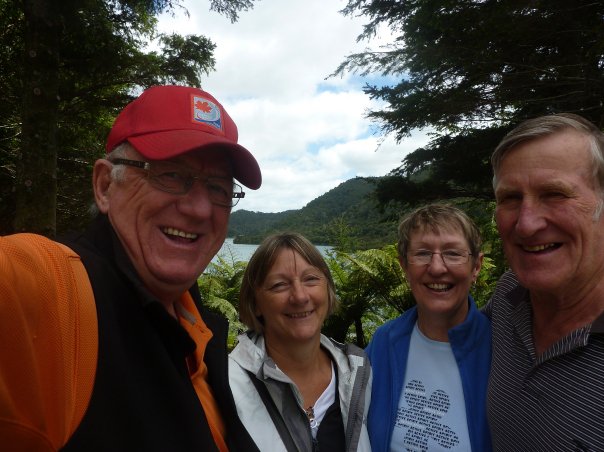
(386)
Trackback from your site.
